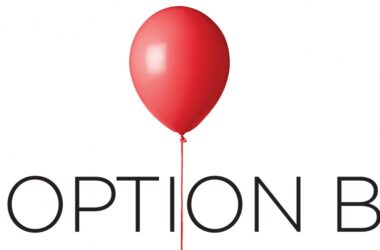Friends, Lovers, and the Big Terrible Thing is a rough read.
Matthew Perry was an actor from a young age, an addict—of alcohol and drugs and fame and fortune, and an advocate for substance abuse. The book chronicles his upbringing as a son of divorced, celebrity parents, and how he made his way to Hollywood and fell in love with acting and comedy. He details his first contact with alcohol and drugs, and admits that he’s spent well over ½ his life trying to beat his addictions. He’s most known for playing Chandler Bing in the TV show Friends1, and tragically passed away at the age of 54, almost a year to the day of publishing this memoir.
Friends, Lovers, and the Big Terrible Thing is a rough read.
To be clear, Perry is a good writer: he tells captivating stories, interjects his brand of humor throughout the narrative, and makes good use of a breadth of literary and storytelling devices that keep the reader’s attention2. Some of the time jumps between chapters can be disorienting, but they don’t distract from the bigger thematic arc of the book. I powered through the book in 2 sittings, which is well above my average reading time for biographies.
Friends, Lovers, and the Big Terrible Thing is a rough read.
It’s a tough read because he is so unabashedly raw in describing all the crap that he’s gone through in life. Granted, he also seemed to enjoy the good parts: he made it a point to remind his readers that he lived in $20-million penthouses, dated—and broke up with—Julia Roberts, partied with Bruce Willis, etc. In every other circumstance, laying it on this thick would be the height of Hollywood narcissistic assholery, but for Perry, these highs also serve to balance out the lows: the surgeries, multiple rehab sessions, fear and self-doubt, the feeling of never being enough. It provides a glimpse, for normal people, of how mental health issues take their toll even on the rich and famous.
It’s a particularly rough read after he unexpectedly passed away last month. By the end of the book, after he has painstakingly chronicled all the hospitalizations and rehab treatments, and bore out the raw emotional void remaining in his renewed, sober self, he determinedly concludes by asserting he is ready to take on the next chapter in life and rediscover everything addiction robbed from him. As I’m writing this review, the cause of death is pending investigation, but no matter the reason, the universe is mercilessly cruel in cutting his renewal journey so, so short.
I struggle with celebrity deaths at times. Intellectually, I understand that the sadness is unidirectional; it’s not as if the celebrity would mourn a stranger if the roles were reversed. Intertwined is a stark reminder of our own mortality, and when it’s before their time, of potential cut short. Perry, though, does owe much of his influence to Friends—a show focused on a group of young adults growing up together—and the timing of its run coincided squarely with my transition into adulthood. Although later critiques highlighted the unrealistic portrayals of money and work, that’s part of what made it work and keeps it popular with a new generation; it’s kind of an idealized version of a group of attractive people in their 20s, providing a faux nostalgia of an era that’s as effective today as it was when I watched it live 2 decades ago. That suspension of disbelief—as unrealistic and naïve as it is upon any sort of critical examination—is permanently altered. Broken.
He’s said in the book and in multiple interviews that he wanted to be remembered first for helping others with their addiction problems, and I’m a bit sad that the vast majority of eulogies didn’t honor that simple wish.↩
Bad writing is usually just bad, but it’s sometimes even worse when it’s trying to be funny.↩



